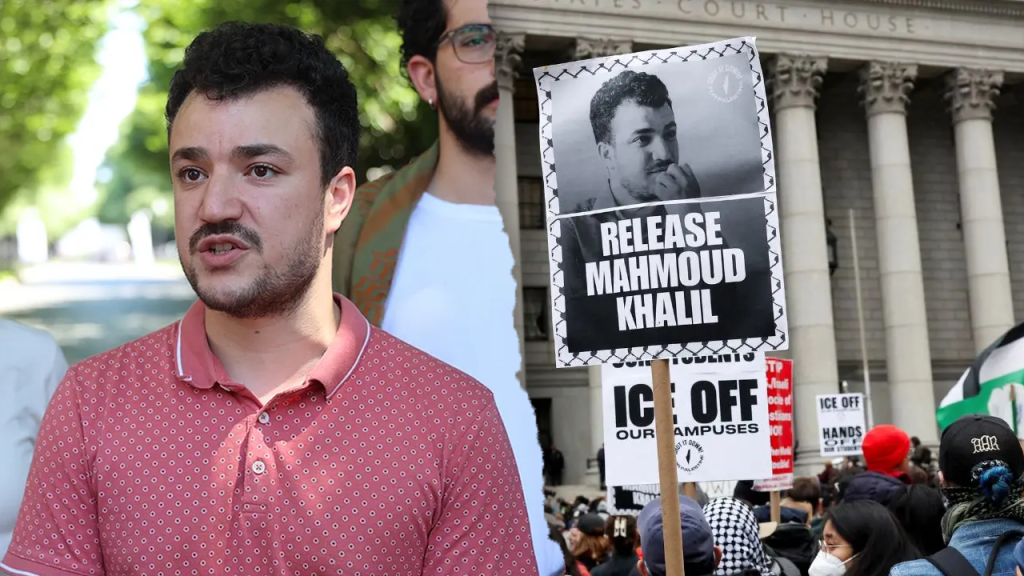A New Jersey federal judge has allowed Mahmoud Khalil, a prominent pro-Palestinian activist, to sue the U.S. government concerning his deportation case amidst a broader legal struggle that encompasses conflicting rulings in different states. As the Trump administration pushes to deport Khalil, who is implicated in various allegations regarding his immigration status and political beliefs, legal debates ignite surrounding free speech rights and national security concerns. Khalil’s case is emblematic of ongoing tensions between government measures and civil rights, as various judicial opinions are rendered on the legality of his detention and deportation.
| Article Subheadings |
|---|
| 1) Overview of the Ruling |
| 2) Legal Context and Background |
| 3) Allegations Against Khalil |
| 4) Reactions from Officials |
| 5) Implications for Civil Rights |
Overview of the Ruling
The recent ruling from the U.S. District Court for the District of New Jersey has significant implications for Mahmoud Khalil, who had been contesting the legality of his detention and impending deportation. The judge, Claire C. Cecchi, overturned an attempt by federal authorities to dismiss Khalil’s suit, arguing that constitutional claims regarding his rights must be heard. Khalil’s case involves complexities spanning multiple states, with separate cases addressing his deportation in Louisiana while he contests his habeas petition in New Jersey. The ruling underscores the challenging legal landscape as Khalil approaches a potential deportation order.
Legal Context and Background
Khalil’s legal predicament arises against the backdrop of the Immigration and Nationality Act, which federal attorneys cited as a basis for dismissing the lawsuit based on jurisdictional claims. The act includes provisions that limit judicial review of certain deportation cases. However, Judge Cecchi’s ruling suggests that Khalil’s constitutional rights merit judicial scrutiny at this juncture. The lawsuit highlights broader legal debates regarding immigration law, free speech rights, and the ability of individuals to seek redress from the legal system in immigration matters.
Allegations Against Khalil
Khalil is facing serious allegations that include claims of fraud in his visa application, as U.S. Department of Homeland Security (DHS) attorneys argue that he failed to disclose critical information regarding his employment with the Syrian office in the British Embassy. Furthermore, he is accused of being a ringleader in pro-Palestinian protests at Columbia University, where he has also purportedly aligned his activities with Hamas, which the U.S. government designates as a terrorist organization. Khalil vehemently denies these allegations, framing them as politically motivated attempts to stifle his advocacy efforts.
Reactions from Officials
The case has attracted considerable attention from various political figures. Kristi Noem, the DHS Secretary, expressed strong sentiments regarding Khalil’s conduct, asserting that individuals who advocate for violence or affiliates with terroristic organizations should have their immigration privileges revoked. Her remarks underscore the administration’s position that Khalil’s alleged activities constitute grounds for his deportation and further complicate his legal battle. Advocates for Khalil have condemned government actions as violations of free speech rights, framing the legal proceedings as a dangerous precedent.
Implications for Civil Rights
As Khalil’s case progresses, its implications extend beyond his personal situation, touching on significant aspects of civil rights and immigrant justice. His attorney, Sabrine Mohamah, has characterized the ruling and the subsequent government actions as alarming infringements upon the First Amendment, revealing potential vulnerabilities for political expression in immigrant communities. The case raises questions about how far the government can go in its efforts to enforce immigration laws while respecting individual rights, particularly those voiced through political activism. Khalil’s struggle symbolizes the ongoing clash between national security interests and the preservation of civil liberties.
| No. | Key Points |
|---|---|
| 1 | A federal court in New Jersey ruled that Mahmoud Khalil’s lawsuit against the U.S. government must proceed. |
| 2 | Khalil faces deportation under allegations including immigration fraud and alignment with terrorist activities. |
| 3 | The ruling raises questions regarding free speech rights and potential overreach by immigration authorities. |
| 4 | Responses from officials like DHS Secretary Kristi Noem reflect the government’s stance on Khalil’s activities. |
| 5 | Khalil’s case serves as a significant marker for ongoing issues related to civil rights and immigrant advocacy. |
Summary
The ongoing legal battle surrounding Mahmoud Khalil raises critical questions about the interplay of immigration enforcement, free speech, and civil rights. With a federal court ruling in favor of allowing his lawsuit to proceed, the case is poised to have broad implications for similar situations involving immigrant and activist rights in the United States. As Khalil navigates the complexities of his legal challenges, the discourse surrounding his case could influence perceptions and policies regarding immigration and political expression in the current socio-political landscape.
Frequently Asked Questions
Question: Who is Mahmoud Khalil?
Mahmoud Khalil is a pro-Palestinian activist facing deportation from the United States due to allegations related to his immigration status and political activities.
Question: What are the allegations against Khalil?
Khalil is accused of immigration fraud, failing to disclose important information on his visa applications, and reportedly aligning his activities with Hamas, a designated terrorist group.
Question: How does this case relate to free speech rights?
Khalil’s legal team argues that his detention and deportation efforts are infringing upon his First Amendment rights to free speech and political expression, highlighting the tension between national security and civil liberties.


